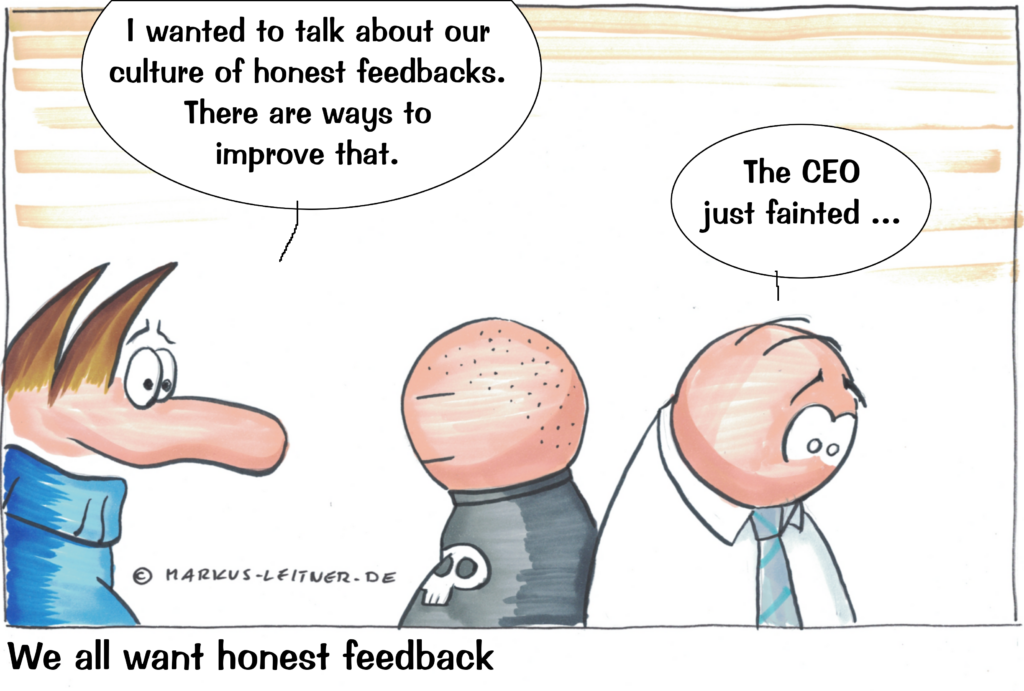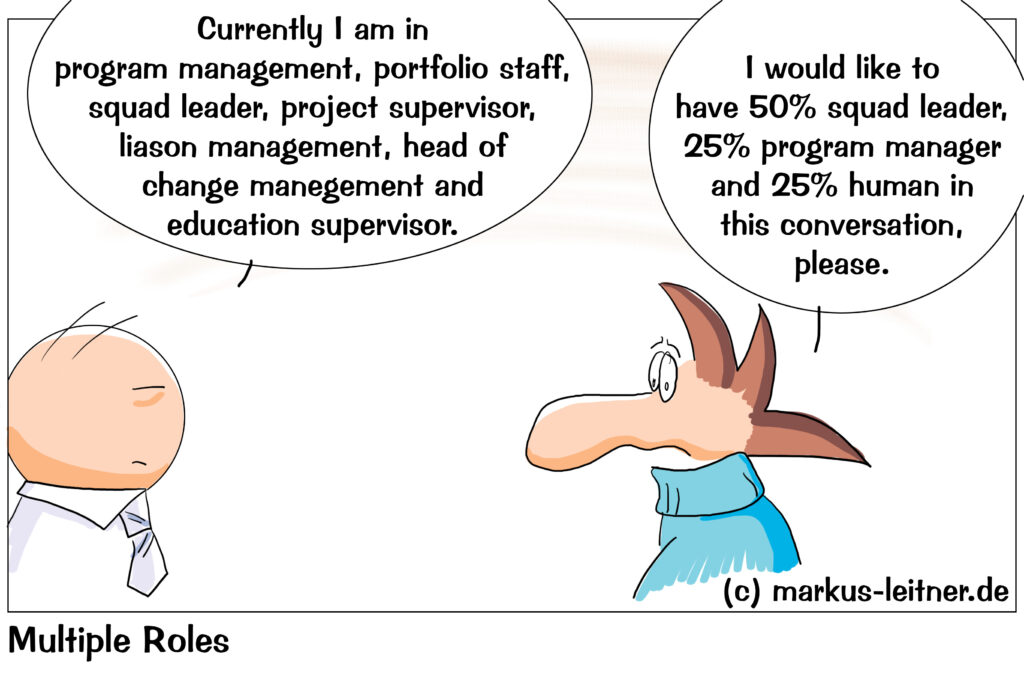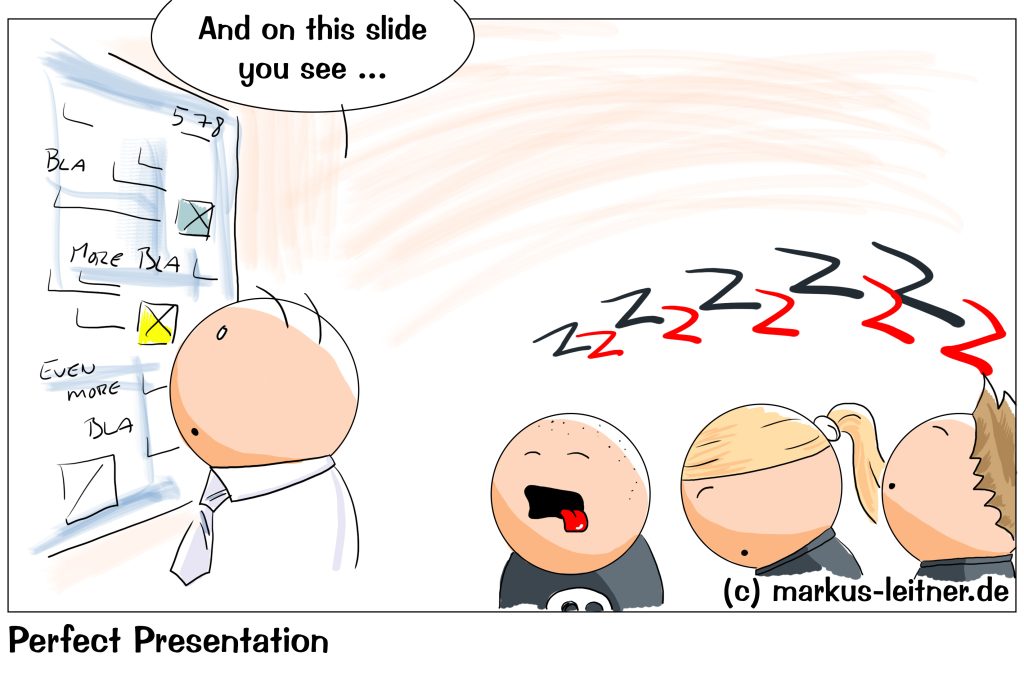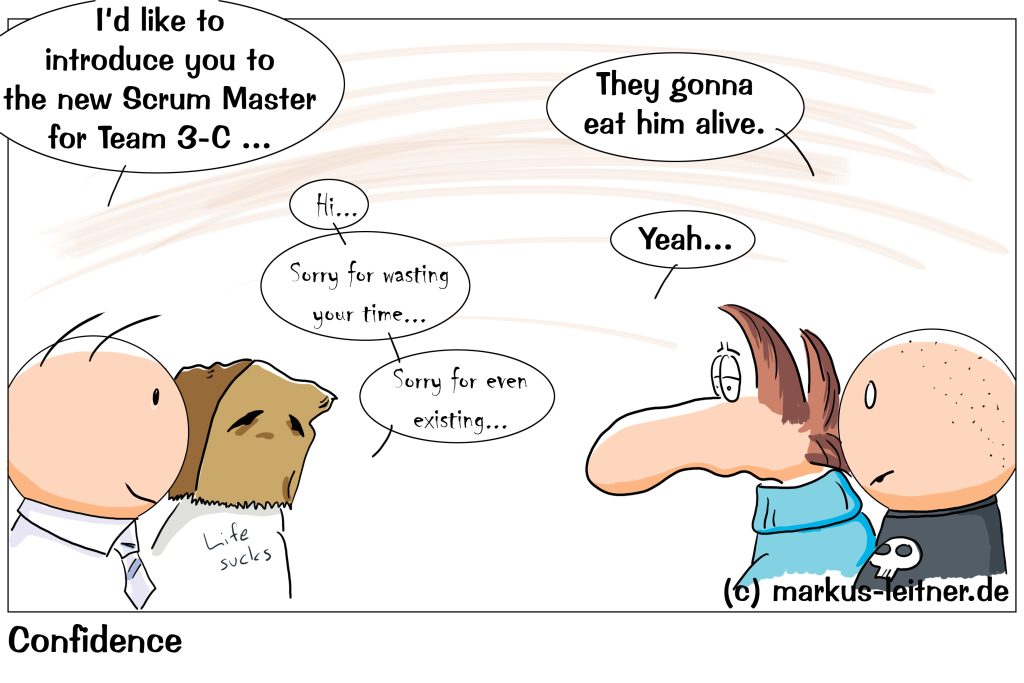
Last time we made it clear, that an agile transformation is also accompanied by a cultural change. Today we want to take a closer look at what this entails and how we can do it in practice.
I am one of those guys, who will always say, that there are many ways leading to Rome, and that we almost always have many options, how to get things done. With culture it is a little bit different. At least, I want to show you a way, that will get you nowhere – guaranteed.
But before we do that, we have to look at a tiny little bit of theory:
Overly simplified, we can say, that culture happens on two different levels – one level of values and one level of actions. Everyone has values and views, that lead to behavior and actions. We can specify courses of actions through regulations. However, if these are not supported by appropriate values, the action remains hollow and lacks context. In medium and long term, our colleagues will tend to move their actions closer to their values and views again.
And it is the same the other way around, if we try to change values (something, that is not very easy), and actions do not follow, we end up with discrepancies again. We will always try to align values and actions. That is simply human nature, and there is nothing we can do against that.
It is also important to realize, that this is not a chicken and egg problem. Actions follow values. Those come first and are difficult to influence through actions alone.
Many organizations are fully aware, that they have a culture topic and are now trying to address it. Often we start a »cultural offensive« or something like that, in which there are many workshops for management and of course no workshops for everyone else but a brochure, in which in epic manner is explained, which values apply to the company and which actions are desired. Perhaps there s also a new culture corner on the intranet and a culture CoP (Community of Practice).
This crowbar method is obviously the expression of a desire for quick results. That is the reason, why culture is addressed directly, and the view is always hat of the company – leading to many problems, first of those being, that the values of the company have to be adapted by the person, before they can be transformed into actual behavior.
Sometimes there are efforts to solve this problem by discussions and short training, but that won’t actually help, because we can not change personal values in two workshops, that have been built up in a lifetime.
What might be a way out of this dilemma?
My suggestion is not to isolate culture as a topic but to integrate it into everything else. Meaning, that everyone involved in our agile transformation – therefore we do not only talk about our scrum masters but also about all our executives and manager – has to realize the connection between culture and agile, adapt it and are able to give insights.
We do not talk about something abstract like cultural change, we talk about those things we need for our agile transformation, about the way we want to communicate, about the types of feedback we need, of the forms of cooperation we want. And most important: why.
We have to give meaning and reason to everything. We have to give context.
Why do we need special forms of communication? What is the reason behind that? Why do we need special forms of feedback? Why s discipline important? Nothing happens without reason. Nothing will be presented to our colleagues without reason and context. We need open communication at eye level, because that is the only way to achieve honest and factual feedback. Only with honest and factual feedback we can enter the circle of plan, do, check, act. Only with that we enter the circle of doing and learning. Only with that we are able to harvest the fruits we are actually hoping for.
And all that happens everywhere. We address those things in the teams and also on all scaled levels, and the people who work on our methods are best suited for this. On team level these are of course our scrum masters or agile coaches or however we like to call them. On the scaled levels that is of course management and executives. That is the reason, why we need all of them. All those will be our students, that they will be able to teach others.
All that embraces the thought of scaling it, away from centralized organization through some sort of »task force culture« towards the most natural way of integrating it into our daily work, giving us another very important advantage: we steer away from culture as an event.
We do no need special events like culture workshops. In my experience, those events only work to coach our coaches, but not to scale over all colleagues and teams. Our coaches und multipliers have to know about the theory. They need method and backgrounds. Everything is fine, but we do not want to isolate the topic culture, we want to integrate it. That is the only way to address values and actions at the same time.
If we can achieve that, if we can steer away from isolating culture towards integrating it into our daily work on every level of the company, the rest is not even hard to do. But we will not be able to gain quick wins. Culture is nothing, where you can get a quick win. Even if we have tons of workshops and an army of coaches – changing views and values takes time, and we have to do it step by step, integrated into our daily work.
And some other quick hint: do not forget your process managers. If you have some of those in your organization, they will be deep into methods and operations. Therefore we need to integrate them early.
Core: Culture should not be isolated. It needs context and should be integrated into our daily work to connect the levels of views and values with those of actions and behavior.
If you need any assistance or want to know more, just speak to me.











